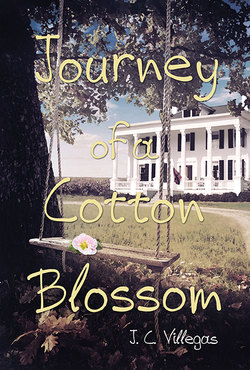Читать книгу Journey of a Cotton Blossom - Jennifer Crocker-Villegas - Страница 9
На сайте Литреса книга снята с продажи.
Оглавление2
The Sweltering Delta
Clarksville, Mississippi, was a big cotton producer. It was a small town in the Delta, known as “the Golden Buckle of the Cotton Belt.” Big producer of cotton meant big plantations, and those big plantations came with rich, white aristocrats whose sense of entitlement was thicker than their wallets.
If you had visited the South that summer of 1943, you would have felt the humidity and caught a whiff of the mint juleps. A mint julep is a drink most southerners can tell you about: a mixture of bourbon whiskey, mint, sugar, and water. In the town of Clarksville, as in most southern towns at that time, you would see a Baptist church on every corner with a large plantation nearby. Funny thing is, while most southerners know about those mint juleps and most southerners are Baptist, every Southern Baptist knows that alcohol and Baptist are not supposed to go hand in hand. Yet they seem to mix well and very often despite alcohol’s supposedly sinful nature.
You could stroll by the picturesque white antebellum homes on your way back from church, a church-held event, or one of the few other activities available in town. You see, in small-town Mississippi, most of the activities revolved around the Baptist church. These antebellum homes are still famous in the South for their regal white columns and grand stature. There is beauty and darkness to them. You can see the exterior beauty of these magnificent structures, but then it is as if you can almost feel the evil that has happened within those walls.
In those days, you would see people working in the large emerald yards with the perfectly manicured rosebushes and cotton-blossom-covered fields. You might have seen somebody sweeping the white, wooden front porch with somebody else slowly rocking in a chair while sipping on a mint julep. It’s a great drink for cooling oneself down on a hot, humid Mississippi summer night. Chances are that you would not have seen the aristocratic owner sweeping the porch, working in the yard, trimming the roses, or tending to the cotton blossoms out in the field—only the “workers,” laboring in that sweltering Mississippi sun.
They were called “workers” because slavery had been abolished almost eighty years earlier, although there was no telling that to the people of the Deep South, particularly those in Mississippi. They were a bit behind on those pesky things called civil rights. Mississippi would not vote to ratify the Thirteenth Amendment, abolishing slavery in the United States, until 1995, but missed the big step of actually filing it. A Freudian slip, one might say. The Thirteenth Amendment was adopted in 1865. One hundred forty-eight years later, on February 7, 2013, Mississippi finally, officially abolished slavery. It is fair to say Mississippi procrastinated a bit.
The “workers,” as they were legally called, were still treated very much like slaves in 1943. They were treated dreadfully inhumanely, less so than one would treat a mule. The owner of one fine plantation in particular would be the one in that rocking chair looking down off his porch at you while sipping his mint julep. You could almost feel his delusional beliefs of superiority and judgment burning your skin while you strolled past. He was casting those proverbial stones with his judgmental god right by his side, or so he believed with his false grandeur. Religion is a funny thing in the South—always has been. There were people such as this plantation owner, Richard Kingsley, who bent religion to fit their personal agenda. Never mind what Jesus really thought or taught.
Yes; this hot, humid summer of 1943 was the summer of Joseph’s birth in the Delta on a sweltering Mississippi day. This was not a good place to be born a little mulatto boy, as they called them, but only when being polite. This region was known as “the most southern place on earth.” The self-proclaimed “grand” white aristocrats called people of mixed race mulattos or, more commonly, Negros. That is, only if they had to be what we now refer to as “politically correct,” which, most of the time, they did not. Being known as “the most southern place on earth” still has its bad and good associations, but in the time of Joseph’s birth, it was mostly bad for a little boy like him.
